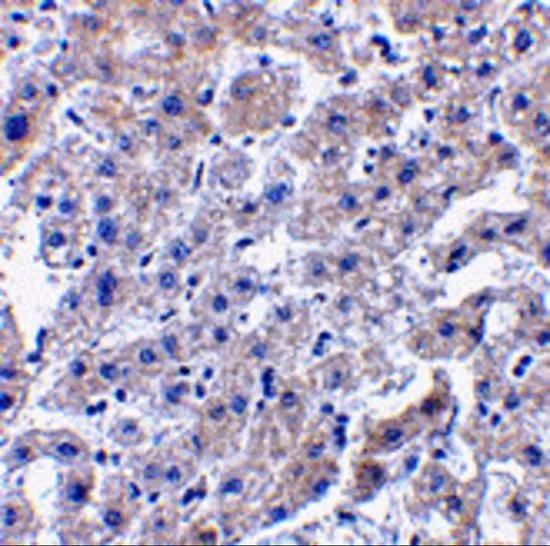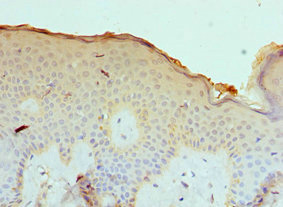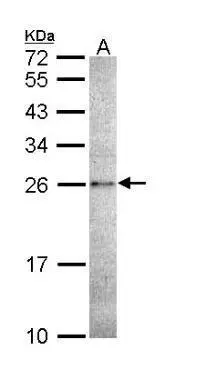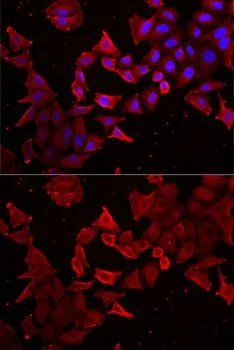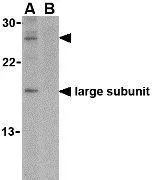
WB analysis of Jurkat cell lysate in the (A) absence or (B) presence of blocking peptide using GTX85087 Caspase 14 antibody. Working concentration : 1 μg/ml
Caspase 14 antibody
GTX85087
ApplicationsWestern Blot, ELISA, ImmunoHistoChemistry, ImmunoHistoChemistry Paraffin
Product group Antibodies
ReactivityHuman, Mouse, Rat
TargetCASP14
Overview
- SupplierGeneTex
- Product NameCaspase 14 antibody
- Delivery Days Customer9
- Application Supplier NoteWB: 1 microg/mL. IHC-P: 2.5 microg/mL. *Optimal dilutions/concentrations should be determined by the researcher.Not tested in other applications.
- ApplicationsWestern Blot, ELISA, ImmunoHistoChemistry, ImmunoHistoChemistry Paraffin
- CertificationResearch Use Only
- ClonalityPolyclonal
- Concentration1 mg/ml
- ConjugateUnconjugated
- Gene ID23581
- Target nameCASP14
- Target descriptioncaspase 14
- Target synonymsARCI12, caspase-14, caspase-14, CASP-14, apoptosis-related cysteine protease, caspase 14, apoptosis-related cysteine peptidase, caspase 14, apoptosis-related cysteine protease, mini-ICE
- HostRabbit
- IsotypeIgG
- Protein IDP31944
- Protein NameCaspase-14
- Scientific DescriptionCaspases are a family of cysteine proteases that can be divided into apoptotic and inflammatory caspase subfamilies. Unlike the apoptotic caspases, members of the inflammatory subfamily are generally not involved in cell death but are associated with the immune response to microbial pathogens. Members of this subfamily include caspase-1, -4, -5, and -12 and can activate proinflammatory cytokines such as IL-1b and IL-18. Caspase-14 is highly expressed in embryonic but not adult tissues. It is processed and activated by caspase 8 and caspase 10 in vitro, and by anti-Fas agonist antibody or TNF-related apoptosis inducing ligand in vivo. The expression and processing of this caspase may be involved in the keratinocyte terminal differentiation, which is important for the formation of the skin barrier.
- ReactivityHuman, Mouse, Rat
- Storage Instruction2°C to 8°C
- UNSPSC41116161

